California Gold Rush: The Race for the Hottest Job in Congress
California's 33rd Congressional istrict is home to some of the Democrats' wealthiest donors and one of the party's most progressive leaders. No fewer than 17 candidates are running to pick up the keys to the treasure chest, but is any a worthy heir?California's 33rd Congressional District is home to some of the Democrats' wealthiest donors and one of the party's most progressive leaders. No fewer than 17 candidates are running to pick up the keys to the treasure chest, but is any a worthy heir?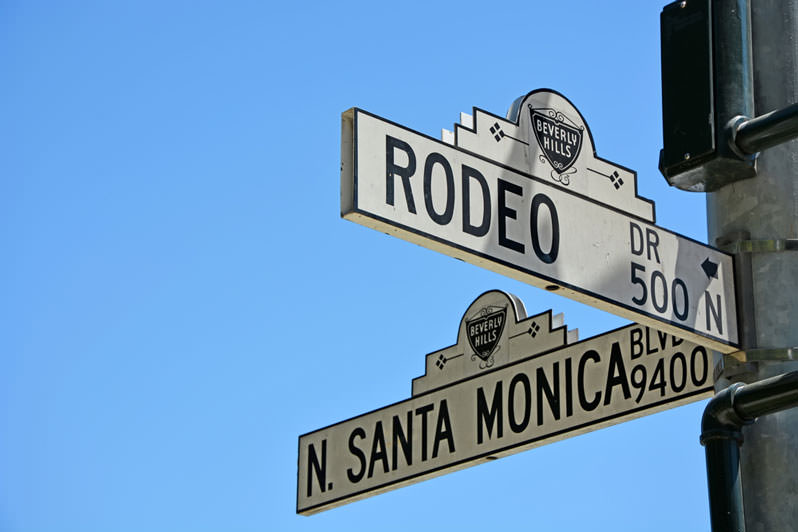 LehaKoK / Shutterstock.com
LehaKoK / Shutterstock.com
Reporting on campaign events this year, I’ve been struck by the political system’s indifference to the greed of the 1 percent, income inequality and government spying.
It’s sharply at odds with the anger visible in the Occupy movement and with the sense of economic injustice evident in the meetings of blue-collar workers I’ve attended. The political process is divorced from reality.
One congressional race in particular illustrates the point. It’s for the seat representing the 33rd Congressional District, which occupies a portion of Southern California reaching from the San Fernando Valley suburbs through the wealth of Beverly Hills and Malibu to Santa Monica and Venice and middle- and working-class suburbs south of Los Angeles. Democratic Rep. Henry Waxman has been the representative for almost 40 years and now is retiring.
The Democratic 33rd has a per capita income of $61,273. With so many rich people, many of them political activists or dabblers, the district is a political fundraising treasure chest, and the winner of this election will have influence with donors.
It’s noteworthy that this wealth has been represented by Waxman, a man whose demeanor is anti-Hollywood glitz. In fact, he exemplifies what government can do for poor, powerless Americans.
From the beginning of Waxman’s career, he has fought for those who needed a break in education and protection against pollution, tobacco, overpriced drugs and bad medical care.
Rather than shouting on cable television news, he has shown his fury at injustice through influential legislation when the Democrats were in power and with muckraking investigations that turn up real evils.
Looking for a new Henry Waxman, I hit the 33rd Congressional District campaign trail. Sadly, I couldn’t find anyone with Waxman’s vision among the 17 candidates for the June 3 primary election.
Sorting them out is like shopping at Costco. So I chose a few Democrats who seem to have the best chance; a Republican, Elan Carr, who has surprising potential; and Marianne Williamson, an independent who is certainly the most intriguing candidate. Under California’s primary system, the top two finishers will compete in a November runoff whether they are Democrats, Republicans or independents.
Only once did I get a sense of outrage. On a recent Monday night I drove to the Saban Theatre, a lushly restored former movie palace in Beverly Hills, to hear Williamson, who is well known as a spiritual adviser, author and inspirational speaker. People outside California might find it unusual that anyone could make a lot of money doing that, but here it’s part of life.
While Williamson is an independent, she said that if elected, she would caucus with House Democrats.
The theater was packed with an audience ranging from the young to the middle aged. It was a contrast to the older folks I encounter among the usual sparse audiences at political meetings.
Williamson spoke in a rich clear voice, her sentences simple but powerful. The audience listened intently.
“Martin Luther King said we aren’t living up to our creed,” she said. “What is our creed? Our creed is that all men are created equal. Our creed is that there should be equal opportunity in this country. Our creed is that all men should be equal before the law. … No man would be above any other man. It wouldn’t just mean all men; it would mean all men and all women. It wouldn’t mean just white men, it would mean black men and black women. It doesn’t just mean straight men, it means gay men and women.”
I thought of Aimee Semple McPherson. She was an evangelist who found her way to Los Angeles in the 1920s. As a spiritual adviser and inspirational speaker of the day, she began drawing thousands to large halls and churches and finally to her own Angelus Temple. She, like Williamson, spoke simply and clearly. As an immigrant from Canada herself, she understood how restless Southern Californians, in particular, were ready for her straightforward message. A biographer, Nancy Barr Mavity, wrote of the Los Angeles of Sister Aimee’s time, “No other large city contains so many transplanted villagers who retain the stamp of their indigenous soil.”
Williamson, like McPherson, is a migrant. She is Texas born and a college dropout. Reporter Terry Pristin wrote of her in a 1992 profile that “she roamed around the country, leading a dissolute life as a singer, cocktail waitress, office temp and bookseller and getting involved in a series of unhappy relationships.”
That history meshed with Los Angeles and the rest of Southern California, still a place of immigrants and children of immigrants, with the fears and insecurities such a status brings with it. These people embrace leaders who preach populism and protest. Like the region’s earthquakes, protests unexpectedly emerge with a bang. Some of them come from the right, notably those that produced anti-tax Proposition 13. Others are from the left, such as the anti-Vietnam War demonstrations and the Free Speech Movement. Protests have come from the old with the Depression-era pension movement; from the docks led by Harry Bridges’ longshoremen’s union; and from Central Valley by farmworkers under Cesar Chavez’s banner.
To a young Henry Waxman, growing up in Los Angeles Jewish neighborhoods –then heavily working class and often poor — this protest was part of life as his fellow Jews climbed upward from the Depression. It helped make him a populist and, in his quiet way, a protester.
Unlike the other candidates, Williamson is tapping into the rebelliousness and fear. “The system itself is rotting from the inside,” she said from the Saban stage. “We have a cancer that is eating our democracy. We have become a legalized system of bribery and corruption. And we as a generation must deal with this. … The status quo never gives birth to a great era of change. By definition the status quo is happy with the way things are.”
In some ways, “status quo” describes the two best-known Democratic contenders, Wendy Greuel and Ted Lieu, hardworking, cautious liberals. Advocating change within the system, they have made their way up the political ladder making as few enemies as possible.
Greuel is a former Los Angeles City Council member, city controller and the second-place finisher in last year’s election for mayor. I’ve known her since she started out as an aide to Tom Bradley, Los Angeles’ first and only black mayor, who transformed city government into something reflective of the municipality’s many ethnicities.
As a candidate for mayor, against eventual winner Eric Garcetti, she had a chance of making history — the city’s first female mayor — but she inexplicably played that down. Instead, she embraced the support and money of the union that represents employees of the unpopular Department of Water and Power, headed by a tough-talking caricature of a male union boss. It made her seem a captive of the union guys instead of the warm and smart woman she is in person.
In this campaign, she is making an effort to sound more like a working mom than a politician. A recent appeal for funds came from her husband, Dean Schramm, who mentioned their son Thomas and their plans to celebrate Greuel’s birthday: “I want to do something to celebrate and show Wendy just how well the hard work and long hours she’s been putting in these past few months is paying off. … Nothing will top what Thomas gives his mom for her birthday. I can’t compete with him. But hey, at least I can come in a close second.” He urged recipients to send Greuel a birthday gift contribution.
She is supported by well-funded women’s political groups, such as EMILY’s List, the National Women’s Political Caucus and the Women’s Campaign Fund.
Lieu started as a city councilman for Torrance, a suburban city in the southern part of the district. Its largely middle-class population, predominantly white and Asian-American, represents a side of Southern California that has little in common with the flash of Beverly Hills, Santa Monica and Malibu. From the city council, he went to the California State Assembly and then the state Senate, always in tune with his constituency and with the Democratic leadership of both houses of the legislature. That ability helped him win the endorsement of the California Democratic Party. His state Senate district covers 80 percent of the congressional district, giving him a big advantage in name recognition.
Lieu is the son of immigrants who brought him to this country when he was 3. They lived in a basement and sold gifts at a flea market, moving up to the ownership of six stores. He graduated from Stanford University and Georgetown Law School, editing the law review there. In the military, he served in the Judge Advocate General’s Corps for four years and is currently an active reserve lieutenant colonel in the Air Force. It’s a good biography for the large number of conservative Democratic voters in the district.
Another Democrat with name recognition is Matt Miller, the middle-of-the-roader who hosts Santa Monica National Public Radio station KCRW’s “Left, Right & Center” show. (Truthdig Editor-in-Chief Robert Scheer occupies the left slot.) Miller is a columnist, lecturer and consultant to corporations and nonprofits and is a senior fellow at the Center for American Progress, which was founded by Clinton White House power and Obama special adviser John Podesta. I asked Ben Sherman, Miller’s campaign spokesman, whether Podesta had discussed the congressional race with the candidate. “Matt did not speak with John Podesta about running, but John has always been very supportive of Matt’s work,” Sherman said.
In the spectrum of Democratic politics, the Center for American Progress is somewhere in the middle, part of the cautious Washington establishment. Ken Silverstein wrote in The Nation this month, “CAP is … among the most secretive of all think tanks concerning its donors.” Silverstein portrayed CAP as being under the thumb of corporate donors, including Goldman Sachs, and implied a CAP publication about the banking firm was subject to vetting by the organization’s bosses and fundraisers. The center replied the piece was not changed and was one of more than two dozen CAP reports critical of Goldman Sachs.
Miller’s extensive writings reflect the center’s middle-of-the-road view. For example, he worries about Social Security cost of living increases. “In an era when health care and pensions for seniors are poised to crowd out cash for every other public priority, or else require tax increases beyond what even liberals think would be good for the economy, this shouldn’t be the left’s only objective,” he wrote. He favored the Iraq invasion although several years later, he wrote, “Since it’s a moment for taking stock of America’s role in Iraq, I want to remind you that I blew it.” He wrote a nine-page policy paper on Israel. “The United States must redouble its commitment to Israel to assure its safety and flourishing,” he said.
Miller was sufficiently impressive to the Los Angeles Times editorial board to win its endorsement, although it said he “wasn’t the only candidate who intrigued us.”
Another interesting candidate is David Kanuth, a deputy public defender who was a tech entrepreneur before going to law school. Unknown, he was able to raise more than $800,000 and win the endorsement of a few sports celebrities, most notably University of Louisville basketball coach Rick Pitino and former Los Angeles Dodger and New York Mets star Mike Piazza.
With so many Democratic candidates, Republican Carr, a deputy district attorney and tough-on-crime advocate, stands a good chance of making it into the runoff even though Republicans make up just 28 percent of the electorate in the strongly Democratic district. If Carr, a moderate on issues such as Obamacare, holds the Republicans together and the Democratic candidates split the vote, he might even make it to first place, although he would find it difficult to beat a Democrat in the fall. His strong Likud-like stand on Israel will help with the more hawkish of the district’s substantial Jewish population, which is predominantly Democratic.
If that happens, and if Williamson is able to translate her charisma into votes, the November runoff will be an expensive show for the nation’s amusement, featuring a crime-fighting Likudnik versus a populist lefty with a powerful speaking style.
But when the curtain drops, the discontented will still be yearning for another Henry Waxman.
Your support matters…Independent journalism is under threat and overshadowed by heavily funded mainstream media.
You can help level the playing field. Become a member.
Your tax-deductible contribution keeps us digging beneath the headlines to give you thought-provoking, investigative reporting and analysis that unearths what's really happening- without compromise.
Give today to support our courageous, independent journalists.
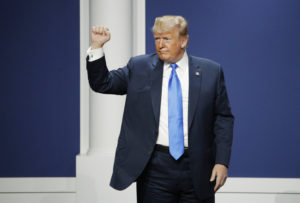

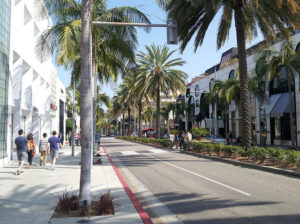
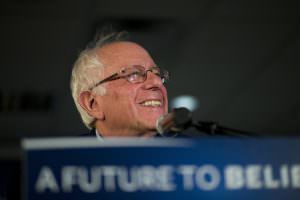

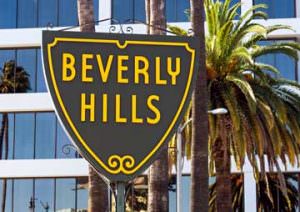
You need to be a supporter to comment.
There are currently no responses to this article.
Be the first to respond.